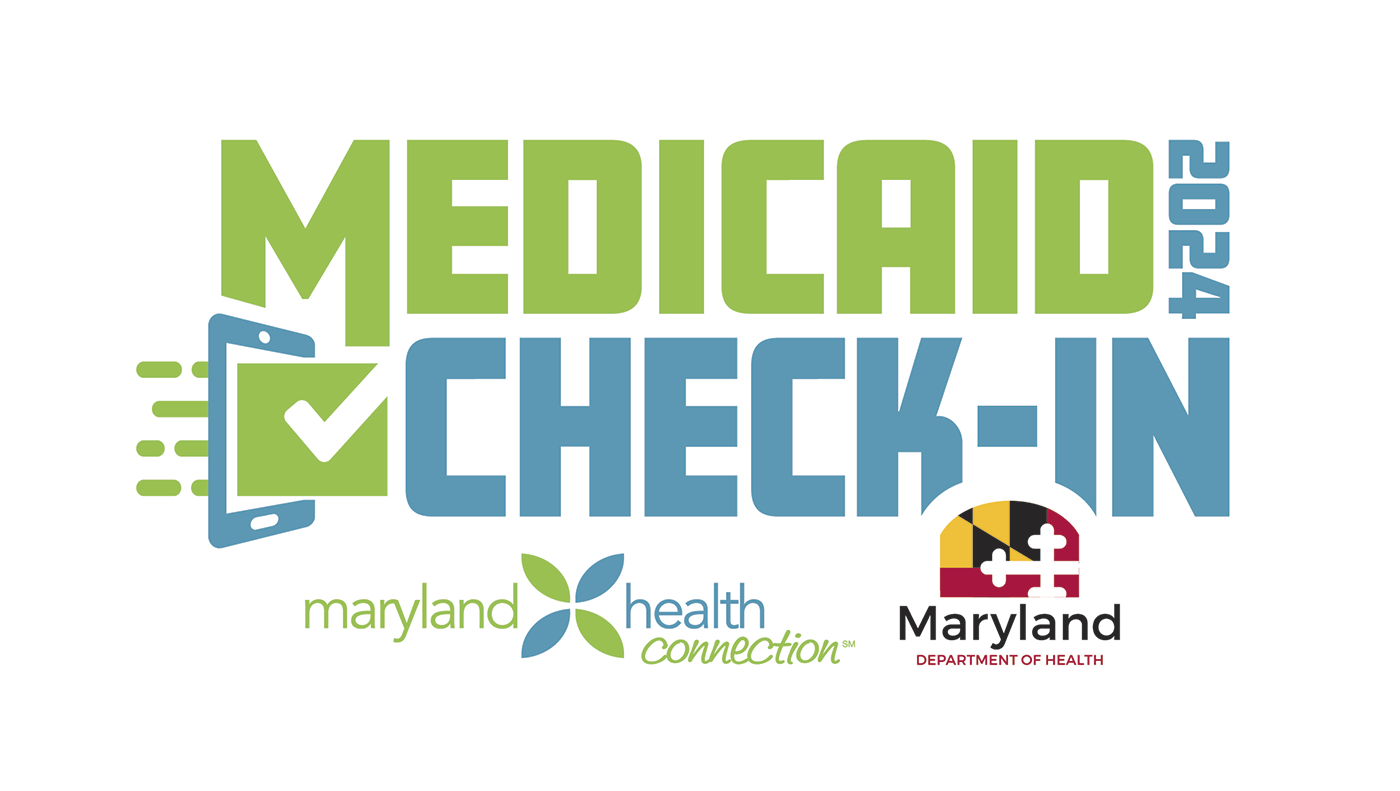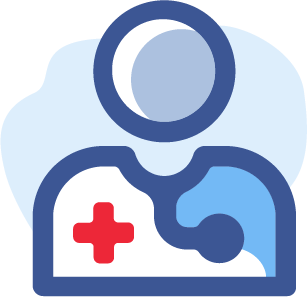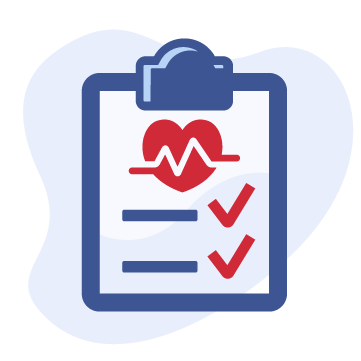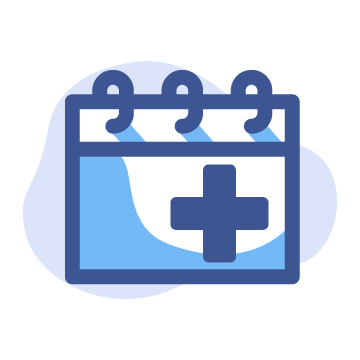
ISSUE 2 / SUMMER 2024


HELP YOUR PATIENTS KEEP THEIR MEDICAID COVERAGE WITH MPC!

Maryland Medicaid requires members to renew their coverage.
Your patients must renew their coverage with Maryland Health Connection this year to keep their health insurance benefits. Patients can renew their insurance by:
- GOING ONLINE to Maryland’s Health Connection at https://marylandhealthconnection.gov/checkin
- CALLING Maryland’s Health Connection’s Customer Service at 855-642-8572
- VISITING MPC’s website at mpcMedicaid.com/renew-membership
REMIND your patients to take these very important steps to keep their MPC coverage.
For more information to assist your patients, please visit the MDH website at https://health.maryland.gov/mmcp/Pages/home.aspx.
Pharmacy Co-Pay Changes
As of May 1, 2024, Maryland Medicaid began requiring that all Maryland HealthChoice MCOs charge a retail prescription drug co-payment. MPC is required to follow this rule. Maryland Medicaid will make all MPC members over the age of 21 start paying a co-payment for pharmacy medications. However, members under age 21, members who are pregnant, and members who are Native American Indian do not have to pay a co-payment.
The co-pays are:
- $3 for non-preferred/brand medications
- $1 for preferred/generic medications/HIV AIDS drugs
Exemptions to the co-pays are:
- Family planning medications
- Other waivers may apply
MPC offers 90-day supplies for select preferred generic medications with a $1 co-pay. Medications included in the 90-day supply select preferred program are for treating diabetes, asthma, high blood pressure, and high cholesterol.
If you have any questions about this change, please contact our Provider Services Department at 800-953-8854 Monday through Friday from 8 am to 5 pm.

HEDIS Measures Performance
The Healthcare Effectiveness Data and Information Set (HEDIS®) is a set of standardized performance measures updated and published annually by the National Committee for Quality Assurance (NCQA). HEDIS is a tool most U.S. health plans use to measure performance on important aspects of care and service. It is designed to provide purchasers and consumers with the information they need to reliably compare the performance of healthcare plans.
Through HEDIS, MPC is accountable for the timeliness and quality of healthcare services delivered to its diverse membership. MPC reviews HEDIS rates on an ongoing basis and continually looks for ways to improve. It is an important part of our commitment to providing access to high-quality and appropriate care for our members. MPC recently made HEDIS gaps-in-care reports available on the provider portal and provides HEDIS Tip Sheets on the website to assist practices with identifying HEDIS measures to engage members in care.
The HEDIS Tip Sheets are also available here.
Meeting Appointment Accessibility Standards
Help is here! Do you have new staff who have difficulty remembering the required HealthChoice Appointment Accessibility Standards? Are your patients able to obtain services when they are needed? Maryland Physicians Care and the Maryland Department of Health monitor the accessibility of our network practitioners. Accessibility is key to member care and treatment outcomes.
Maryland Physicians Care follows the accessibility requirements set forth below by applicable regulatory and accrediting agencies. We monitor compliance with these standards annually and use the results of monitoring to ensure adequate appointment accessibility and reduce the unnecessary use of emergency rooms.
Please review the appointment accessibility standards below. The appointment accessibility standards below are found in the Provider Manual and are available as a handout/staff training tool from your designated Provider Relations Representative.
MPC Correct Coding Corner
- Recent medical record/claim reviews have identified professional claims submitted with incorrect rendering provider information. For accurate and prompt payment of claims, the rendering and billing of the National Provider Identifier (NPI) must be accurately reported. For credentialed professional providers, the rendering provider’s NPI is to be reported on the professional claim in section 24J of the CMS1500 claims submission. Failure to provide the correct rendering provider information may result in your claims being delayed, denied, or recouped.
- Please complete, sign, and date the medical record documentation of services upon conclusion of the visit or as soon as practicable to maintain an accurate medical record. Refer to the MPC Provider Manual for a listing of comprehensive medical record requirements.
- Please notify MPC of any additional location-specific NPI2 information.
- For inpatient and outpatient hospital claims, the rendering provider NPI should be the same as the billing provider NPI.
- Per EPSDT Transmittal No. 32 dated 9/14/2010, please bill age-appropriate preventative CPT codes with modifier “32” for children entering State-supervised care. Modifier “32” should only be used for the initial examination visit and any other procedures provided during that visit. Modifier “32” should not be used for subsequent visits.

Access to Care Management
MPC offers Care Management services to members with high-risk, complex, or catastrophic conditions. Such conditions include but are not limited to issues such as asthma, diabetes, sickle cell disease, HIV or AIDS, and Congestive Heart Failure.
Members are not always able to care for themselves on their own. Our Care Managers are trained nurses or practitioners who are there to assist where they can. It provides additional quality and cost-effective care to members and added support to providers, staff, and members’ families.
Care Managers help break down the benefits of their treatment plan, including the outcomes of not following the plan as directed by the provider. They are an added point of contact between the member and their family, along with healthcare professionals.
Members can be referred to Care Management by sending an email to our MPC Special Needs Coordinator at MPCSNC@mpcmedicaid.com. If you would like more information on Care Management services, call 1-800-953-8854.
Guidelines for Care
Maryland Physicians Care adopts preventive and clinical practice guidelines based on the health needs of our membership and opportunities for improvement identified as part of the quality improvement program. Guidelines are available for preventive services, as well as for the management of chronic diseases, to assist in developing treatment plans for members and to help them make healthcare decisions. Maryland Physicians Care evaluates providers’ adherence to the guidelines at least annually, primarily by monitoring relevant HEDIS measures.
For the most up-to-date version of our preventive and clinical practice guidelines, visit the links below.
___________________
Medical Practice Guidelines:
https://www.marylandphysicianscare.com/wp-content/uploads/2024/02/2024-Medical-Practice-Guidelines-1-1.pdf
___________________
Preventative Services Guidelines:
https://www.marylandphysicianscare.com/wp-content/uploads/2024/02/2024-MPC-Preventive-Services-Guidelines-2.pdf

Over-the-Counter Pharmacy Coverage
Maryland Physicians Care has many over-the-counter (OTC) products available on the formulary. A list of over-the-counter medications can be found here. The list includes medications such as antacids, cough and cold products, diabetic agents, and more. Most OTC medications require a prescription to be processed at the pharmacy, except for latex condoms and emergency contraceptives. There may be quantity limits set, which may be identified on the preferred drug list here.
What is Cultural Competence?
Training Yourself in Cultural Competency
In today’s healthcare model, challenges exist with cultural competency related to race, ethnicity, gender identity, sexual orientation, and languages other than English that may lead to healthcare disparities. “Cultural competence is the ability to collaborate effectively with individuals from different cultures, and such competence improves healthcare experiences and outcomes.” This includes being able to recognize the diversity between and within cultures, being able to do a self-assessment, and willingness to adapt your behaviors and practices.
Practitioners can begin promoting cultural competency by completing cultural competency training. MPC offers links to cultural competency training on our provider website that address the following:
- Cultural and linguistic competency in medical practice
- Strategies to promote self-awareness about attitudes, beliefs, biases, and behaviors that may influence clinical care
- Conscious and unconscious bias in healthcare
- How to effectively communicate with patients with limited English proficiency and cultural differences
- Understanding the health needs of the LGBTQ+ population
Participating in Cultural Competency Training can provide several other interventions for connecting with culturally diverse populations. MPC is pleased to provide all network providers with quick access to these training resources and encourages all providers to participate in cultural competence training.
Training resources can be found on the MPC website at https://www.marylandphysicianscare.com/providers/cultural-competency-training/. Detailed information, such as a link to the resource, the topics covered, length, cost, and certifications or CEUs offered, is included in each training resource.
Sources: https://www.ncbi.nlm.nih.gov/pmc/articles/PMC6571328/#R14

Communication Tips
Effective communication is vital in establishing trusting relationships between doctors and patients. Effective communication has three basic components: verbal, non-verbal, and para-verbal. The non-verbal component includes gestures, facial expressions, body language, and space. While communicating, most of us focus on the verbal component that constitutes only ten percent of the message delivered. In contrast, non-verbal and para-verbal components contribute ninety percent of the total message delivered. Communication is part of the holistic approach to patient care.
Listening not only involves understanding the verbal component but also elicits patients’ attitudes, needs, and motives behind the words, delving into the physical, social, and emotional impact of these problems on the patient’s quality of life.
Here are some of the communication strategies that may help providers improve listening skills:
- Put patients at ease. Some patients may be nervous, so begin with a general non-medical inquiry to develop a comfortable setting.
- Show interest in what the patient is saying with your mannerisms (i.e., shoulder patting, head nodding, establishing and maintaining eye contact at reasonable intervals), body language, and active involvement, like leaning towards the patient. Remember that physical touching may not be socially acceptable in some cultures.
- Be careful not to interrupt patients when they’re expressing something.
- Involve patients in decision-making. The treatment plan should conform to patients’ understanding, beliefs, cultural values, and concerns.
- While concluding, ask patients if they would like to add something more.
Effective communication leads to more open, trusting relationships and outcomes of healthier, happier patients!
For more specific communication strategies that may help improve your listening skills, here is the full article by the NIH National Library of Medicine: https://www.ncbi.nlm.nih.gov/pmc/articles/PMC4413084/.
Maryland Prenatal Risk Assessment (MPRA)
The Maryland Department of Health (MDH) requires that a Maryland Prenatal Risk Assessment (MPRA) be completed during the first prenatal visit and that a copy of the completed form be faxed within 10 days to the Local Health Department (LHD) in the county in which the woman resides. Instructions and fax numbers are on the back of the form. This allows LHDs to improve monitoring of MPRA completion and initiate follow‐up with providers and facilities that do not routinely submit MPRAs.
Providers are reimbursed for the completion of the MPRA. The HCPC billing code for completion of an MPRA and development of the plan of care is H1000. Maryland Medicaid’s reimbursement for completion of the MPRA and development of the plan of care is $40.00. This fee is in addition to the fee for the prenatal visit (Evaluation and Management code). Only one risk assessment per pregnancy will be paid.
The MPRA helps identify women with medical, nutritional, and psychosocial predictors of poor birth outcomes and allows the patient, local health department (LHD), provider, and MCO to work together to promote the best possible birth outcome. Completion of the MPRA and completion of a plan of care at the first prenatal visit is required for all Medicaid patients.

Men’s Mental Health
Mental health is important for both men and women. Men, however, are less likely to mention how they are feeling to family and friends or during visits with their providers. Men feel speaking about their feelings is a sign of “weakness” and are less likely to receive mental health treatment or a diagnosis. There are many factors that play into men’s mental health, such as family life, race, culture, and day-to-day activities.
Mental health issues like depression are no different than other health concerns such as diabetes or high blood pressure. Mental health matters and should be included in an office visit. About 1 in 10 men experience a type of depression, yet less than half seek treatment.
Depression can also look different in men, and symptoms may be harder for them and others to identify. Symptoms in men may look like irritability, aggression, recklessness, or substance abuse. Men may feel they should not ask for help and try to cope with these symptoms on their own. However, asking for help is a way for them to take control of their health and build the support they need.
June is Men’s Health Awareness Month; this is a time to assist members with the help they need. Normalize the conversation during office visits by checking in on the members’ mental health. If you need additional resources, see Behavioral Health to refer the member for Primary Mental Health Services.
Alzheimer’s/ Dementia Awareness
Alzheimer’s disease is a form of dementia. Dementia affects a person’s memory, impairing their judgment and ability to complete daily tasks. It is the most progressive neurological disorder affecting those diagnosed and their families. It is important for everyone that this disease is discussed because there is understanding and support for those who are affected.
As we age, the chance of dementia increases. It primarily affects older adults, yet it is not a normal part of aging. Education is important to increase awareness and promote early detection. As providers, you can help members recognize signs and get connected to timely interventions.
Encourage members to shift towards a healthier lifestyle by having them pick a couple of factors to focus on daily
- Take a 30-minute walk
- Learn something new
- Improve their balance to help prevent falls and reduce head injury
- Have a healthier diet
- Try to get at least 7-8 hours of sleep a night
In addition, help members identify any underlying conditions that may increase their risk of dementia. Specifically, conditions linked to dementia like heart disease, high blood pressure, high cholesterol, high blood sugar, depression, and obesity. Signs and symptoms recognized early allow for proper management of the members’ condition.
VISIT OUR WEBSITE
to find helpful information on:
- Quality Improvement Programs
- Population Health Management Programs
- Care Management Programs
- Health & Wellness Programs
- Clinical Practice Guidelines
- Utilization Management, including decision-making criteria, affirmative statement, and staff availability
- Pharmacy and Prescription Drug Management
- Benefits and Coverage
- Member Rights and Responsibilities
- Protected Health Information Use and Disclosure
- Provider Manual
- Member Handbook
- Provider Directory
- Credentialing Rights
If you do not have internet service, you can reach us by phone (numbers listed in “Who to Call” – below) for more information.
WHO TO CALL
MARYLAND HEALTHY SMILES DENTAL PROGRAM
1-855-934-9812
PUBLIC MENTAL HEALTH SERVICES
1-800-888-1965
SUPERIOR VISION
1-800-428-8789
UTILIZATION MANAGEMENT
1-800-953-8854
CASE MANAGEMENT
1-800-953-8854
HEALTH EDUCATION REQUESTS
1-800-953-8854

Referrals and MPC
Please note that MPC does not require referrals for specialist care.

HELP PREVENT
FRAUD AND ABUSE
MPC needs your help to prevent fraud and abuse! We encourage you to report anything suspicious you may have seen. You may report fraud and abuse without fearing retaliation by calling MPC’s Compliance Hotline at 1-866-781-6403 or visiting MPC Fraud and Abuse.

Enroll in ePREP
Are you enrolled in the electronic Provider Revalidation and Enrollment Portal (ePREP)? ePREP is a requirement for Maryland Medicaid providers. It is a one-stop shop for provider enrollment, re-enrollment, revalidation, information updates, and demographic changes. Please ensure you are enrolled and that your information is consistently kept up to date. Providers who do not enroll or have out-of-date information may not be paid for services to Maryland Medicaid recipients. Review these tips (.pdf) for getting started and for additional resources. Enroll or update your information at eprep.maryland.health.gov.

Keep Us Informed
MPC needs to be notified if your practice is unable to accept new members. It is important that we have accurate information in our provider directory, as members use the directory to select practitioners. By providing updated information, you can assist MPC in providing the best care we can for our members. We also need to know if you plan to move, change phone numbers, or change your network status. Call 1-800-953-8854 to update or verify your contact information or status. You can also check your information on our secure provider portal. Please let us know at least 30 days before you expect a change to your information.





